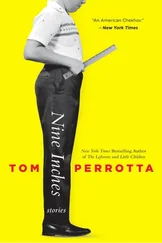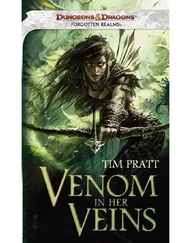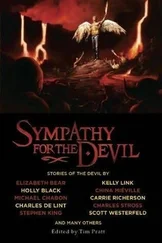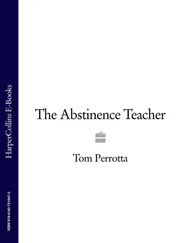TOM PERROTTA
Election


Copyright Table of Contents Title Page Copyright Praise Dedication Epigraph Chapter 1 Chapter 2 Chapter 3 Chapter 4 Chapter 5 Chapter 6 Chapter 7 Chapter 8 Chapter 9 Chapter 10 Chapter 11 Chapter 12 Chapter 13 Chapter 14 Chapter 15 Keep Reading Acknowledgements About the Author By the Same Author About the Publisher
This novel is entirely a work of fiction. The names, characters and incidents portrayed in it are the work of the author's imagination. Any resemblance to actual persons, living or dead, events or localities is entirely coincidental.
Fourth Estate
An imprint of HarperCollins Publishers Ltd.
1 London Bridge Street
London SE1 9GF
www.harpercollins.co.uk
This Harper Perennial edition published 2009
First published in the USA in hardback by G. P. Putnam's Sons (1998).
First published in paperback in the USA by Berkley (1998).
Copyright © Tom Perrotta 1998
Tom Perrotta asserts the moral right to be identified as the author of this work
A catalogue record for this book is available from the British Library
All rights reserved under International and Pan-American Copyright Conventions. By payment of the required fees, you have been granted the non-exclusive, non-transferable right to access and read the text of this ebook on-screen. No part of this text may be reproduced, transmitted, down-loaded, decompiled, reverse engineered, or stored in or introduced into any information storage and retrieval system, in any form or by any means, whether electronic or mechanical, now known or hereinafter invented, without the express written permission of HarperCollins ebooks
HarperCollins Publishers has made every reasonable effort to ensure that any picture content and written content in this ebook has been included or removed in accordance with the contractual and technological constraints in operation at the time of publication
Source ISBN: 9780007262403
Ebook Edition © MARCH 2009 ISBN: 9780007319411
Version: 2017-01-05
From the reviews of Election Table of Contents Title Page Copyright Praise Dedication Epigraph Chapter 1 Chapter 2 Chapter 3 Chapter 4 Chapter 5 Chapter 6 Chapter 7 Chapter 8 Chapter 9 Chapter 10 Chapter 11 Chapter 12 Chapter 13 Chapter 14 Chapter 15 Keep Reading Acknowledgements About the Author By the Same Author About the Publisher
:
‘ Election provides those gratifyingly exact and telling portraits of the kids themselves. Solid plotting guarantees that the reader really does want to learn who wins when the ballots are finally counted’
New York Times
‘A neatly written, nimble-witted novel. A good-natured, John Irvingesque portrait of the contemporary world … Seamless storytelling’
Washington Post
for my brother and sister
“The teacher is engaged, not simply in the training of individuals, but in the formation of the proper social life. I believe that every teacher should recognize the dignity of his calling; that he is a social servant set apart for the maintenance of the proper social order and the securing of the right social growth.”
—JOHN DEWEY
“The world is the School gone mad.”
—WILLIAM TREVOR
Title Page TOM PERROTTA Election
Copyright
Praise
Dedication
Epigraph
Chapter 1
Chapter 2
Chapter 3
Chapter 4
Chapter 5
Chapter 6
Chapter 7
Chapter 8
Chapter 9
Chapter 10
Chapter 11
Chapter 12
Chapter 13
Chapter 14
Chapter 15
Keep Reading
Acknowledgements
About the Author
By the Same Author
About the Publisher
ALL I EVER WANTED to do was teach. I never had to struggle like other people with the question of what to do with my life. My only dream was to sit on the edge of my desk in front of a room full of curious kids and talk about the world.
The election that turned me into a car salesman took place in the spring of 1992, when Clarence Thomas and Anita Hill were still fresh in everyone's mind, and Gennifer Flowers was the momentary star of tabloids and talk shows. All year long my junior Current Events class returned again and again to a single theme, what the media liked to call “the Character Issue”: How are private virtue and public responsibility intertwined? Can you be an adulterer and a good President? A sexual pervert and an effective, impartial member of the judiciary?
It's fair to say that these questions interested me more than my students. Like most American adolescents, the kids at Winwood High didn't pay too much attention to the Supreme Court or the race for the White House. Their concerns were narrower—school, sports, sex, the unforgiving politics of the hallway and locker room.
But we also had the Glen Ridge rape case to discuss. My students were fascinated by this sad and sordid story, and it became the nexus where their concerns linked up with those of the larger democracy. The case had not yet gone to trial at that point, but the kids at Winwood knew the details inside and out. A group of high school athletes—the golden boys of Glen Ridge—had been charged with luring a retarded girl into a basement, forcing her to commit a variety of sexual acts, and then penetrating her vagina with a broomstick and a baseball bat. None of the defendants denied the event had occurred. Their defense was that the girl had consented.
We had developmentally disabled kids at Winwood, and we had football heroes, too; the gap between them was immense, almost medieval. It wasn't too hard to imagine how a lonely, mildly retarded girl might consider it a privilege of sorts to be molested and applauded by the jock royalty of her little world. They were the ones with the power of conferring recognition and acceptance. If they saw you, you existed.
Given the similarities between Winwood and Glen Ridge—we were only separated by a couple of exits on the Parkway—it didn't really surprise me that the overwhelming majority of my class, girls included, sided with the defendants and their right to a good time. If a girl, even a retarded girl, was dumb enough to join a troop of red-blooded boys in a basement, then who could blame the boys for taking advantage of this windfall?
I had my own opinion of the defendants—I wanted to see them convicted and sent to prison, where they could find out for themselves what it meant to be scared and weak and lonely—but I kept it to myself in the classroom, opting instead for the more neutral roles of moderator and devil's advocate.
“They were strong and she was weak,” I pointed out. “So don't the strong have a responsibility not to hurt or humiliate the weak?”
Lisa Flanagan ventured the first response. She was exactly the kind of kid I was trying to reach, a smart, unhappy girl who wanted nothing more than to be accepted by the jock/cheerleader aristocracy at Winwood and had no idea—how could she?—of how relieved she was going to be to find a different world in college, more charitable standards of value.
“Mr. M.,” she said helpfully, as if cluing me in to the true nature of the world, “that's not how it works. The strong take what they want.”
Читать дальше














